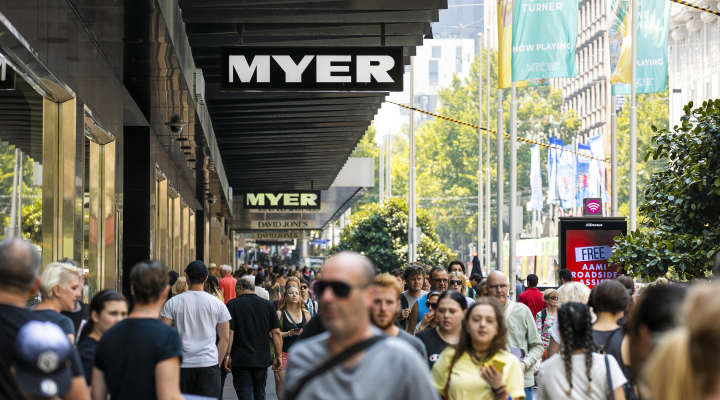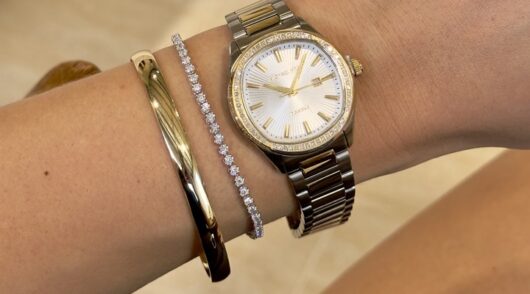A recent Myer trading update will have analysts and investors thinking long and carefully about the bold proposal by the department store for a merger with Premier Investments. The proposed merger certainly seems to have benefits for Solomon Lew, chairman of Premier Investments, but the key question raised by the deal is whether or not it is beneficial to other shareholders. The Myer trading update has made that question more important, especially in view of unsuccessful attempts in the pa
the past to expand the company’s retail operations.
Why is Myer doubling down rather than divesting?
The August update revealed the underperformance of the Myer Specialty Brands division has shaved almost 50 per cent off net after-tax profit in FY24 compared to FY23.
The underwhelming performance in FY24 of Sass & Bide, Marcs and David Lawrence was attributed to a weak trading environment and consequent discounting, but the problems would seem to run deeper.
Indeed, a strategic review prompted Myer to appoint KPMG Corporate Finance last February to pursue a sale of the three brands.
The review of the Myer department store business and Myer Specialty Brands was initiated by John King, who retired as CEO in June.
Olivia Wirth, who became Myer executive chair, replacing King, joined the board of Myer Specialty Brands in July after announcing the approach to Premier “to explore a potential combination” of Myer and Premier’s apparel brands.
The surprise decision by Myer to defer, if not abandon, divesting the three fashion brands in favour of scaling up Myer Specialty Brands by adding the Premier apparel brands could face significant investor resistance.
The merger proposal announced in June “continues to progress,” according to Wirth and is no doubt now factored into ongoing strategic business reviews at both Myer and Premier on their future direction and growth drivers.
The concurrent reviews were no doubt the catalyst to explore combining the two businesses, along with the fact that Lew has emerged as Myer’s largest shareholder while also controlling the destiny of Premier.
The merger proposal could potentially bolster Myer’s loyalty programs, generate sales growth with possible international opportunities online, if not in bricks-and-mortar, and add expertise in specialty retailing.
The proposal would also quell speculation about Myer’s ownership, and no doubt provide significant synergy benefits and even the possibility of management tweaks to reinvigorate the fashion direction of the merged brands.
For Lew, the proposal would consolidate his two major retail investments after spinning off the Smiggle and Peter Alexander brands.
The ongoing Premier review has been about succession and estate planning issues, and the merger proposal provides a solution that benefits Lew and, in all probability, offers Premier shareholders some potential new opportunities.
The Premier apparel brands – Just Jeans, Portmans, Jacqui E, Dotti and Jay Jays – have been inconsistent performers for a number of years. However, this deal provides scale and should extract significant synergy benefits.
The Myer takeover of Premier Retail would require approval by shareholders and from the Australian Competition and Consumer Commission, the Australian Securities and Investments Commission and the Australian Taxation Office.
However, there are no foreseeable regulatory hurdles for this takeover and the Myer acquisition of the Lew-controlled Premier Retail brands is a more palatable outcome to Myer shareholders than a reverse manoeuvre.
Myer has proved to be an industry survivor
Shareholder approval is not a foregone conclusion, though, as analysts and, more directly, Myer investors have stymied Lew’s attempts over a number of years to force changes at the department store.
The August trading update certainly hasn’t helped the plan, as the poor trading and profit performance of Myer Specialty Brands begs the question of whether or not there is a viable fit for specialty chains and the department store.
Myer has proved to be an industry survivor after taking over other department store groups such as Grace Bros in Sydney, Boans in Western Australia and John Martins in South Australia.
However, Myer’s track record with other retail businesses has had mixed success at best.
The Target department store chain was reasonably successful under Myer’s ownership but Red Rooster, San Remo, Crittendens, a liquor business, and Country Road all proved ill-fitting specialty businesses for the department store.
Moreover, attempts by Myer to establish a number of new retail concepts, such as Mycar and Megamart, a big box rival to Harvey Norman, have been less successful.
An aggressive store expansion program launched by private equity owners who acquired Myer from the Coles Group in 2006 proved unsuccessful, and Solomon Lew’s intervention scuttled an attempt to merge with rival David Jones.
Myer acquired a 65 per cent stake in Sass & Bide in 2011 and bought the remaining shares three years later.
Myer acquired Marcs and David Lawrence in April 2017 after both brands were placed in voluntary administration.
Apart from history, there could also be resistance from institutional shareholders to the expanded influence Lew might have going forward as well as a wariness about the ability of Wirth to successfully manage the hybrid retail model.
The announcement in March of Wirth’s appointment as CEO and executive chair of Myer raised eyebrows because of her limited retail experience after joining the board as a non-executive director just last year.
Wirth’s experience was in tourism and transport roles before working in marketing, customer service, and corporate affairs with Qantas and then heading and expanding the airline’s loyalty programs – albeit not necessarily to the satisfaction of members.
The decision to backtrack on the sale of Myer Specialty Brands after the strategic review initiated by King, her predecessor as CEO, was a big call, more so with the performance issues highlighted in the August trading update.
The decision to potentially double down and expand the specialty retail division by adding the Premier apparel brands that generally plodded along for years is, therefore, yet another big call.
It is not known whether the merger plan was a captain’s call by Wirth or an idea suggested by Terry McCartney, a former Myer CEO who was nominated by Premier as a director for the department store retailer, and/or Gary Weiss, a Myer board member and long-time friend of Lew.
Trading update
The August trading update on unaudited figures indicated a fall in sales with the closure of the Brisbane CBD and Frankston Victoria stores.
Comparable store sales showed a gain of just 0.4 per cent, while net earnings are expected to be around $50 million, down about 30 per cent on FY23.
If the merger does proceed, it will lift Myer’s revenue from around $3.26 billion in the latest financial year to $4 billion or better if trading conditions improve.
The merger could provide an opportunity to create a formidable hybrid fashion retail business that could realise Wirth’s desire to position the business for growth.
It would also relieve Lew’s succession headaches with respect to apparel brands and allow him to pursue international growth plans for Smiggle and Peter Alexander.
However, the bottom line is that Wirth’s merger proposal is not without risks and may take a lot of sweet talking to get analysts and investors supportive, let alone enthused.
The proposal’s fate will likely be revealed in October at investor presentations after audited FY24 results are released and ahead of annual general meetings for both Myer and Premier.







